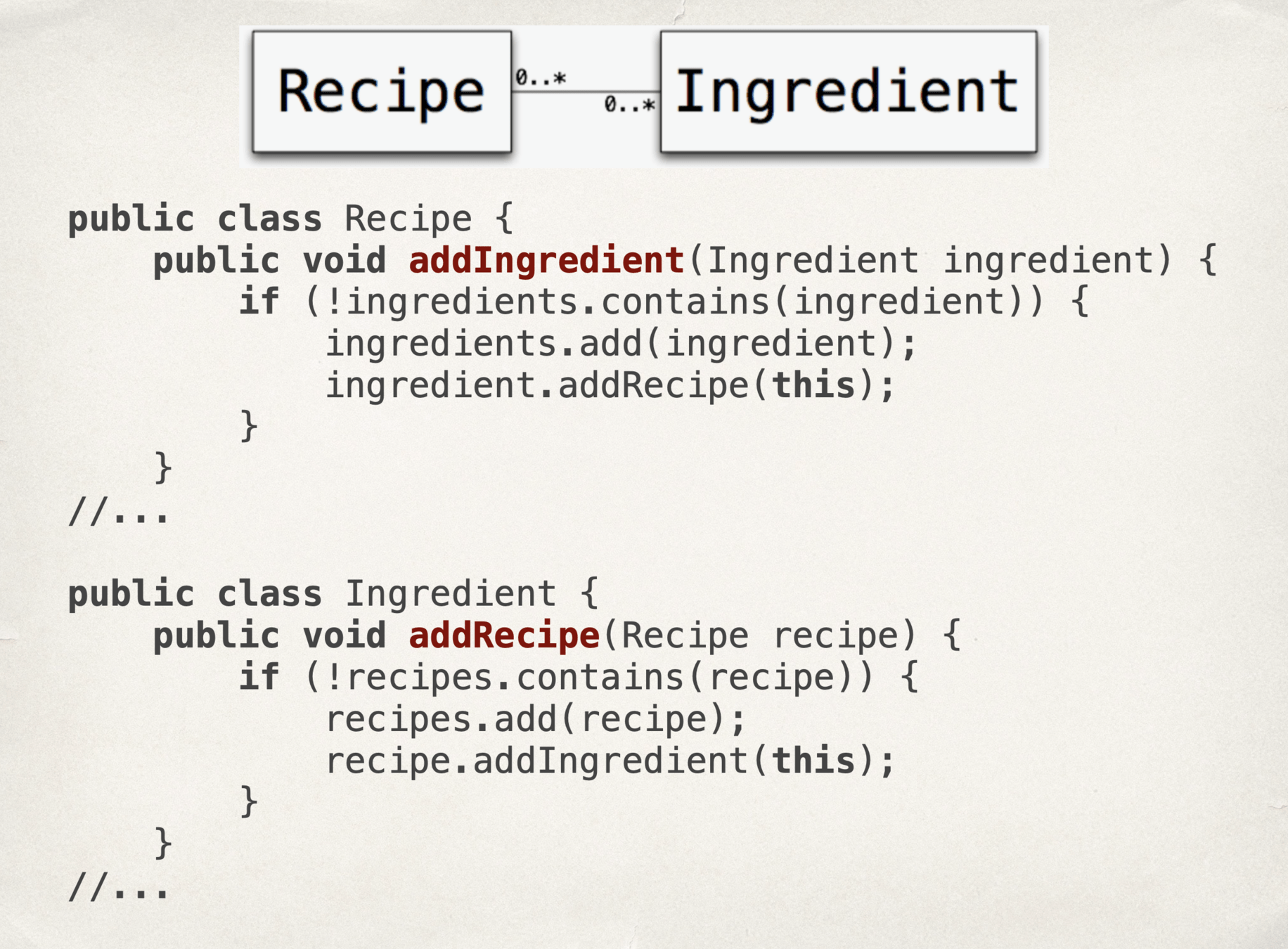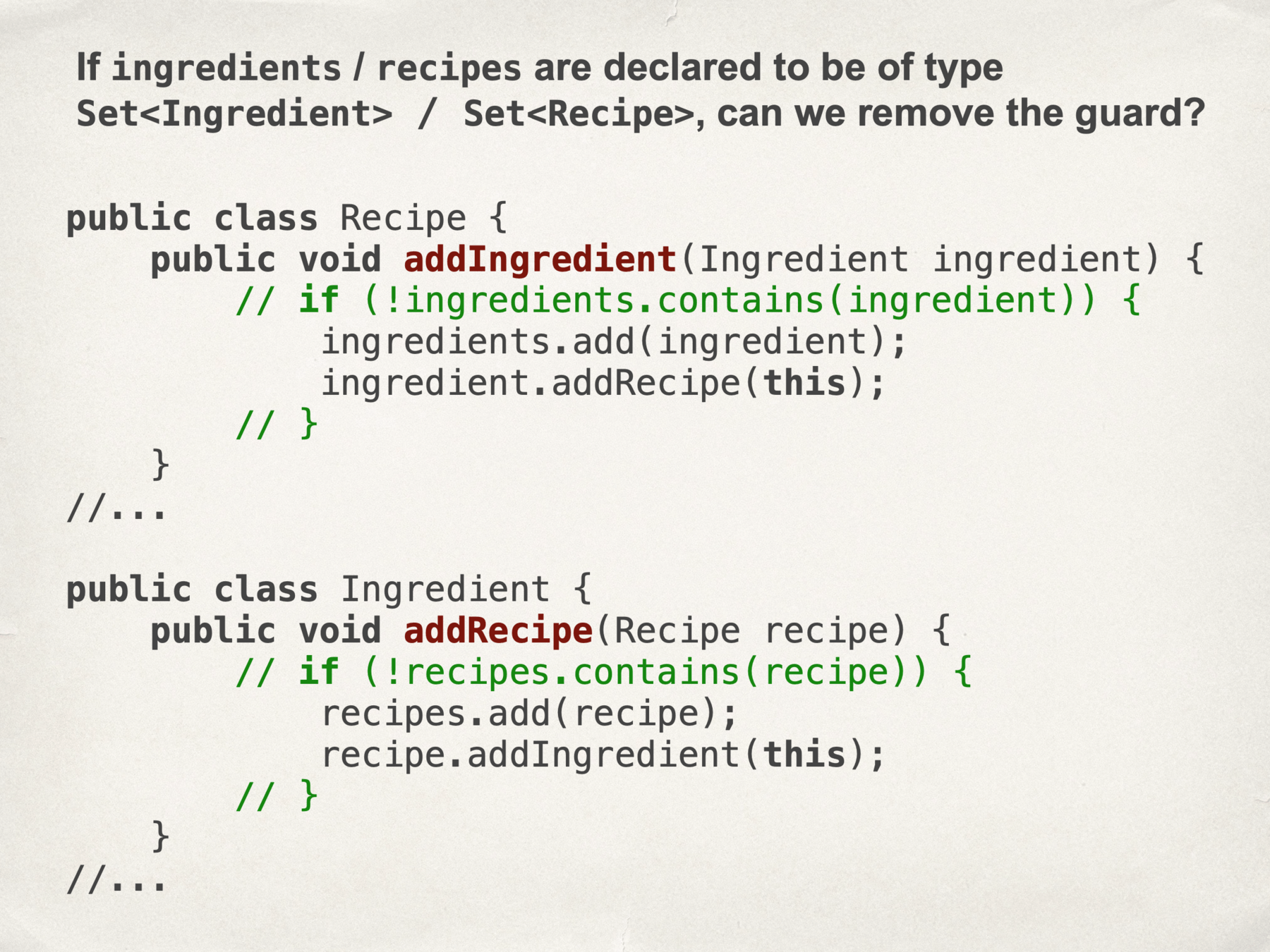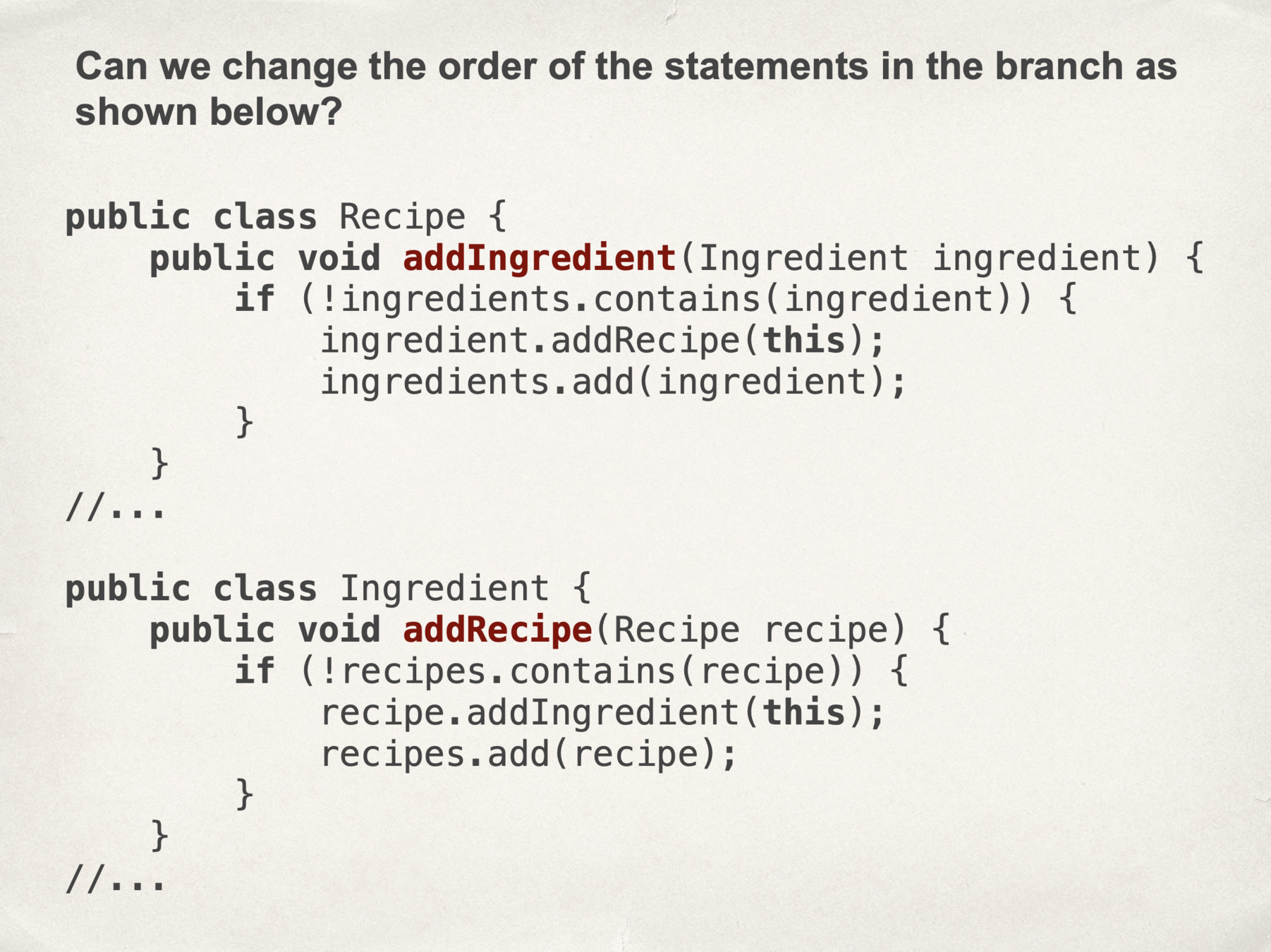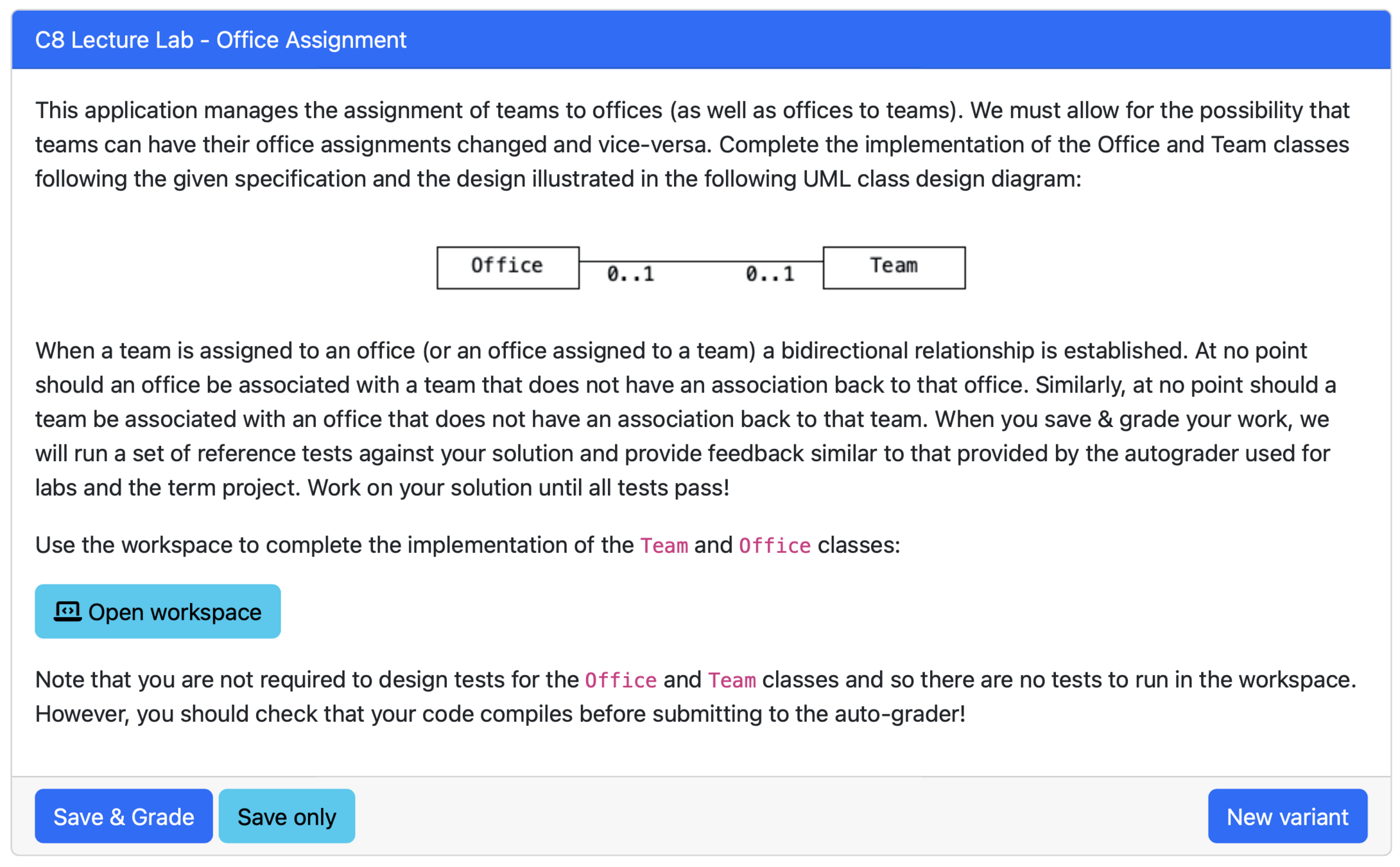CPSC 210
C8:
Reflexive Relationships

Recap: Auto-generated equals method
- Let's assume we have a class Instructor with a field name and:
- we want to consider two instructor objects equal if they have the same name
@Override
public boolean equals(Object obj) {
if (this == obj)
return true;
if (obj == null )
return false;
if (getClass() != obj.getClass())
return false
Instructor other = (Instructor) obj;
if (name != other.name )
return false
return true
}Learning Goals
- Understand and implement reflexive relationships


Reflexive Relationships
- Also called bi-directional relationships
- Types know of each other and changes in one type must be reflected in the other
- Three general types: One to One, Many to One, Many to Many
0,1
0,*

public class Book {
private List<Review> reviews;
// ...
}public class Review {
private Book book;
// ...
}
Bi-Directional (2)

public class Book {
// ...
private List<Review> reviews;
public void addReview(Review review) {
}
}public class Review {
// ...
private Book book;
public void setBook(Book book) {
}
}
- Methods affecting the relationship must call associated method in the other class passing this
- To guard against infinite sequences, we check if the work has already been done in both
if (!this.reviews.contains(review)) {
this.reviews.add(review);
review.setBook(this);
}if (this.book != book) {
this.book = book;
book.addReview(this);
}Lecture Ticket

Lecture Ticket

Lecture Ticket

Lecture Ticket

Lecture Lab

Lecture Lab

C8: Reflexive Relationships
The End - Thank You!
Copy of CPSC210 - C8 Reflexive Relationships
By firas_moosvi
Copy of CPSC210 - C8 Reflexive Relationships
- 347



